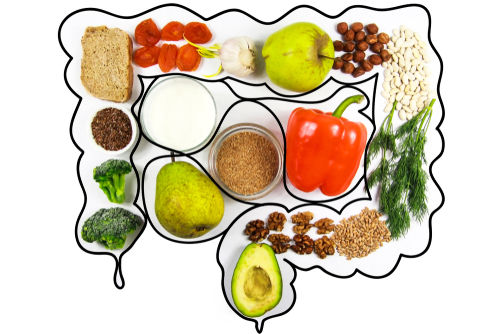Pro-Biotics
- jocelyn9918
- Jan 25, 2020
- 3 min read
Updated: May 26, 2020

How many people out there take a Pro-Biotic? I took one for a little while and then stopped for some unknown reason, but now, after reading this article written by Dr. Mercola, I am going to the health food store today to pick one up. Now, my understanding is the LIVE pro-biotic is the best. I had no idea that scientific evidence shows that nourishing your gut flora with friendly bacteria is extremely important for proper brain function, and that includes psychological well-being and mood control. It may sound odd that bacteria in your gut could impact emotions such as anxiety, but that is exactly what the research bears testimony to. On top of that, Compromised Gut Flora leads to ADHD, autism and learning disabilities.
News Flash: Did you know you have two nervous systems? Your central nervous system, composed of your brain and spinal cord, and enteric nervous system, which is the intrinsic nervous system of your gastrointestinal tract.
Both are created out of the same type of tissue. During fetal development, one part turns into your central nervous system while the other develops into your enteric nervous system.
These two systems are connected via the vagus nerve, the tenth cranial nerve that runs from your brain stem down to your abdomen. It is now well established that the vagus nerve is indeed the primary route your gut bacteria uses to transmit information to your brain.
In a very real sense, you have two brains: one inside your skull and one in your gut, and each needs its own vital nourishment. Your gut and brain actually work in tandem, each influencing the other. This is why your intestinal health can have such a profound influence on your mental health, and vice versa; as well as the reason why your diet is so closely linked to your mental health.
This year has been an exciting one for unraveling some of the “mystery” between gut flora and mental health. For example, research demonstrated that probiotics have a direct effect on brain chemistry under normal conditions—in such a way that can impact your feelings of anxiety or depression.
Interestingly, neurotransmitters like serotonin are also found in your gut. In fact, the greatest concentration of serotonin, which is involved in mood control, depression and suppressing aggression, is found in your intestines, not your brain!
Many people start their day by popping a multi-vitamin as a sort of “insurance policy” to cover their bases, nutritionally speaking. But all in all, the research into probiotics indicates that supplementing with probiotics is probably more important than taking a multi-vitamin. In fact, many of the essential nutrients that we find in multi-vitamins are produced for us 24/7 by these beneficial bacteria, such as the entire spectrum of B Group vitamins.
Actually, the best way to ensure optimal gut flora is to regularly consume traditionally fermented foods, which are naturally rich in good bacteria. Pasteurized versions will NOT have the same benefits, as the pasteurization process destroys many, if not all of the naturally occurring probiotics. So you will need to seek out traditionally fermented, unpasteurized foods, or make them yourself. This includes:
- Fermented raw milk such as kefir or yogurt, but NOT commercial versions, which typically do not have live cultures and are loaded with sugars that feed pathogenic bacteria. Make your own.
- Various pickled fermentations of cabbage sauerkraut, turnips, eggplant, cucumbers, onions, squash, and carrots or Tempeh, Kimchi, Natto (fermented soy)
If you do not eat these types of foods regularly, then a high-quality probiotic supplement can help fill in the gap and give your gut the healthy bacteria it needs. This is the first part of the equation.
The second part of the equation to optimizing your gut flora lies in avoiding the many factors that can throw your bacteria equilibrium way off balance. For the sake of your gut health, it is vitally important to eliminate ALL sugars, as they will sabotage any beneficial effects of the fermented foods. In short, sugar acts as a “nutrient” for the disease-causing yeast, fungi and bacteria that are in your gut. If you’ve been struggling with anxiety, or other signs that you have an excess of unhealthy bacteria in your gut, such as gas and bloating, fatigue, sugar cravings, nausea, headaches, constipation or diarrhea, eliminating sugar and fructose is an excellent starting point toward recovery.
As you remove the offending foods from your diet and begin to introduce nourishing probiotics, your gut flora will come back into a healthy balance. Once this occurs, it’s common to experience a variety of emotional and physical improvements.
This article was published with the permission of DrMercola.com “Take Control of your Life” by Dr. Mercola, a New York Times bestselling author. For more helpful articles, please visit Mercola.com today and receive your FREE Take Control of Your Health E-book!









Comments